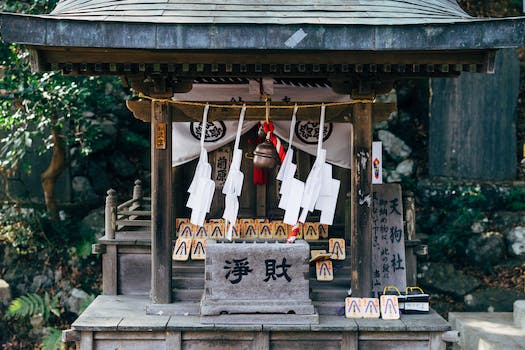Homestays are a fantastic way to gain firsthand exposure to a new culture. Staying with local families is a great way to learn about the culture and customs of a place. Cultural homestays provide an immersive experience that goes beyond the conventional tourist activities, such as learning traditional cooking techniques, taking part in religious rites, or simply engaging in regular conversations. Learn how cultural homestays can enrich your life and deepen your awareness for other cultures by reading this insightful essay.
- 1. Introduction
- 1.1. What are cultural homestays?
- 1.2. Benefits of cultural homestays
- 1.3. Popular destinations for cultural homestays
- 1.4. How to find cultural homestays
- 1.5. Preparing for a cultural homestay
- 2. Immersing in Local Traditions
- 2.1. Learning local customs and traditions
- 2.2. Participating in cultural activities
- 2.3. Sampling traditional cuisine
- 2.4. Attending festivals and events
- 2.5. Exploring historical sites
- 3. Building Meaningful Connections
- 3.1. Living with a host family
- 3.2. Interacting with locals
- 3.3. Developing cross-cultural friendships
- 3.4. Sharing experiences and stories
- 3.5. Gaining a deeper understanding of the host culture
- 4. Enhancing Language Skills
1. Introduction
Homestays in foreign countries provide tourists with a rare chance to experience local life firsthand. Rather than staying in a hotel or resort, travelers to a foreign country can experience local life through a cultural homestay. This is an excellent opportunity to immerse oneself in the local culture, meet interesting people, and form lasting relationships. Cultural homestays provide an enriching and immersive experience that goes beyond normal tourist activities, such as learning traditional culinary methods, participating in local festivals, and engaging in traditional arts and crafts. This essay will discuss why cultural homestays are becoming more and more popular among tourists searching for genuine experiences abroad.
1.1. What are cultural homestays?
In-depth and unforgettable cultural experiences can only be had through homestays. Cultural homestays allow people or families to live with locals in their homes, learning about and participating in many aspects of daily life in the host culture. Staying at such a place allows guests to immerse themselves in local life and culture, enriching their trip immensely. Activities that are common parts of cultural homestays include making local dishes, learning local crafts, and celebrating holidays with the host family. Visitors who stay with locals have a much better chance of making friends, learning about the culture, and having memorable experiences. Cultural homestays are a wonderful opportunity to learn about and experience new cultures, whether you choose to visit a little town, a large city, or a faraway island.
1.2. Benefits of cultural homestays
The ability to live like a local in another country is something that can only be found through cultural homestays. Spending time with a local family is a great opportunity to learn about the culture and customs of the area. You can learn to appreciate the finer points of their culture by participating in it personally. Cultural homestays provide an unequaled chance for cultural exchange and learning, from sharing meals to taking part in local events. Staying at a local person’s house is a great way to immerse yourself in their culture and make friends from all over the world. The right connections can help you meet interesting people, learn about different cultures, and see more of the world throughout your travels. In conclusion, staying in a local’s home is the best way to fully experience a destination and its culture.
1.3. Popular destinations for cultural homestays
Homestays in foreign countries provide tourists with a rare chance to experience local life firsthand. Tourists can learn more about the local culture and way of life by staying with local families at famous tourist spots. These homestays offer something above the usual tourist fare: a chance to really get to know the locals. Cultural homestays give visitors an authentic opportunity to experience local life, whether it is through taking part in traditional ceremonies, learning local handicrafts, or mastering area cuisine. This article will discuss some of the most well-known places for cultural homestays, where readers can experience a country’s authentic culture firsthand.
1.4. How to find cultural homestays
The ability to live like a local in another country is something that can only be found through cultural homestays. Staying with local families can provide an intimate peek into the daily lives, traditions, and customs of a community, enriching the trip experience for anybody interested in learning more about the local culture. In this essay, we’ll discuss how to identify cultural homestays and make the most of them.
1.5. Preparing for a cultural homestay
Research, openness, and respect for the host culture are all essential in getting ready for a cultural homestay. It’s a chance to totally submerge oneself in the culture of the place you’re visiting. You may make the most of your cultural homestay by following these guidelines:
One of the most important things you can do before going on a cultural homestay is to learn as much as possible about the host culture. This will make it much simpler for you to adapt to the culture and communicate effectively.
Second, make sure you have everything you need for your homestay by packing sensibly and keeping in mind the local climate, dress norms, and any cultural nuances. Dressing politely and modestly is highly valued, especially in more traditional societies. Don’t leave home without your toothbrush, toothpaste, and prescription pills.
Third, keep an open mind and be willing to change your plans as necessary throughout your cultural homestay. Don’t be afraid to put yourself beyond of your comfort zone and taste the local cuisine. Being adaptable is also crucial, as you may have to make adjustments to your original plan.
Having open lines of communication with your host family is crucial to having a positive homestay experience. Show genuine curiosity about them and their culture by engaging in conversation and asking questions. Your ability to understand and negotiate cultural differences will be enhanced by your ability to communicate effectively.
Fifth, observe local societal norms and conventions as a sign of respect for the host culture. For example, you might be expected to take your shoes off at the door, exchange specific greetings with others, or avoid discussing sensitive subjects. You can avoid offending someone by being aware of and respectful of their cultural norms and expectations.
While it’s not required, it’s always appreciated when guests make an effort to communicate with their hosts in their language. Break the ice and have more meaningful conversations by learning some simple welcomes, thanks, and other conversational expressions.
Step into the unknown and gain fresh insights by participating in a cultural homestay. Accept the unknown, have an inquisitive mindset, and keep an open mind and spirit. Keep in mind that the point of a homestay is not simply to observe local customs; rather, it is to participate fully in them.
2. Immersing in Local Traditions
Learning About the Culture of the Area
Cultural homestays provide a wonderful opportunity to learn about and participate in local customs and traditions. You can have a far richer understanding and appreciation of the local way of life by participating in the community’s traditional activities.
By taking part in regional celebrations, you can learn about the fascinating practices that have been passed down from generation to generation. Experiences such as participating in traditional dances, mastering traditional crafts, and attending religious events provide an insight into the destination’s rich cultural past.
Homestay programs are a great way to immerse yourself in a new culture and immerse yourself in the local way of life. Sharing insights and building understanding are both facilitated by such conversation.
In addition, participating in regional customs might help you question your own biases and open your mind to new ideas. It inspires you to try something new, which ultimately leads to development and introspection.
at sum, staying at a local family’s house is a fantastic way to learn about their culture and customs. It’s a once-in-a-lifetime opportunity to make genuine cross-cultural contacts and get significant insight into a community’s culture.
2.1. Learning local customs and traditions
Learning about and experiencing the local culture is one of the greatest benefits of participating in a homestay program. It’s a great chance to learn about and participate in the local culture in a genuine way. Your grasp of the local culture and your ability to connect with the locals will both improve as a result of your participation in these rituals.
You will get the most out of your homestay if you go in with an open mind and treat the local traditions with due reverence. Spend some time observing and asking questions of the people; they will teach you the most about the culture. Take an active interest in what they are saying and doing; talk to them and ask them questions about their culture.
Another great method to learn about the culture is to take part in local celebrations and events. Participating in community rituals like traditional dances, religious ceremonies, and holiday celebrations is a great way to get to know the people and culture of a place. Participating actively not only demonstrates respect for the culture but also results in priceless new memories.
Adding to your experience of the local culture is learning the language’s fundamentals. Learning even a few words of the language indicates that you care about connecting with the locals on a deeper level and respect what they have to say. It can lead to deeper connections with others and a richer immersion in the host culture.
In general, a cultural homestay is a wonderful way to learn about and appreciate the local culture and way of life. Experience the local culture firsthand, make friends from all over the world, and make memories that will last a lifetime by volunteering in a foreign country. If you take advantage of classes, activities, and interactions with people, you can genuinely feel a part of the culture.
2.2. Participating in cultural activities
Cultural activities provide visitors with a chance to thoroughly experience local customs and traditions. Participating in cultural events, such as a local dancing lesson, craft workshop, or ritual, is a great way to get to know the locals and gain insight into their way of life. Travelers might have a greater respect and understanding of the local traditions and customs by taking part in cultural activities rather than sitting on the sidelines. Taking part in local activities is a great way to learn about the area’s culture and make lasting connections with the people you visit.
2.3. Sampling traditional cuisine
Immersing oneself in local culture during a cultural homestay includes sampling the local cuisine. You get to taste the local specialties and learn about the culture behind them. Insight into a people and their way of life can be gained through their traditional foods, which frequently reflect the history, culture, and geography of a country. You’ll get a better feel for the local culture and please your taste buds at the same time by sampling some of the regional specialties. Every bite you take, from the hot curry in India to the fresh sushi in Japan to the handcrafted pasta in Italy, enhances your cultural immersion experience.
2.4. Attending festivals and events
During cultural homestays, going to local festivals and events is a great opportunity to learn about the culture and customs of the host country. These colorful and exciting events are a one-of-a-kind chance to immerse yourself in the local culture of your travel location. Attending community activities, such as a religious ceremony, a traditional dance performance, or a local market, is a great way to learn about the local culture and traditions.
Participating in local celebrations is a great way to learn about the traditions, customs, and culture of the folks you’re living with. It’s a great way to meet people, gain insight into the culture, and make some new friends! Each festival is an opportunity to experience the joy of communal celebration and a vibrant display of the local culture.
Participating in regional celebrations and events gives you the opportunity to sample regional delicacies. The authentic flavors and delicacies of the area can be sampled at the several festivals dedicated to gastronomy. You can sample regional specialties, as well as dishes prepared in the traditional style and on the street.
In addition, many celebrations and functions feature traditional arts and crafts displays. Artists at work on elaborate paintings, woven fabrics, and hand-crafted instruments. Understanding and appreciating the local culture and history through these hands-on activities is invaluable.
In general, participating in cultural homestays that include attending local festivals and events is a great opportunity to learn about the history, culture, and customs of your travel location. You can meet locals, indulge in regional delicacies, and take in cultural performances. Taking part in one of these lively festivals is a great way to immerse yourself in the local culture and make some unforgettable memories.
2.5. Exploring historical sites
Cultural homestays are a great way to experience a destination’s local customs and traditions up close and personal, and visiting local historical places is a great chance to do just that. These museums and monuments are repositories of a region’s rich cultural history.
Travelers can learn about the history of a place and how its people have lived and thought through the landmarks they visit. Every historic site, from ruins to landmarks to heritage buildings, has a story to tell.
You may really get a feel for the heart of local customs when you wander the halls of an ancient temple or gaze in amazement at a medieval castle. These ruins, with their architectural marvels, detailed designs, and symbolic features, reveal aspects of ancient cultural activities and beliefs.
In addition, several museums have moved their exhibits outdoors so that visitors can experience traditional ceremonies, plays, or reenactments at historical sites. By participating in these activities, visitors can learn more about the history and significance of local customs through direct experience.
Cultural encounters and deepening ties to the neighborhood might blossom from visits to historic locations. Engaging in conversation with well-versed guides or locals can enrich your trip by providing unique insights and anecdotes.
In conclusion, visiting historical landmarks and participating in cultural homestays go hand in hand. These locations give visitors a glimpse into the diverse cultural history of a place, heightening their appreciation for the genuineness and complexity of the local traditions they experience.
3. Building Meaningful Connections
Cultural homestays place a premium on connecting with hosts on a personal level. When you travel to a foreign country, it’s important to make an effort to connect with the local people in addition to learning about their customs and traditions. These bonds go beyond surface conversation and help you absorb and enjoy the host culture fully.
During a cultural homestay, one method to make lasting ties is to talk to the people. Spend some time talking to your host family and neighbors. Inquire into their culture, habits, and way of life. Take an honest interest in what they have to say. Doing so will not only help you better comprehend their worldview, but it will also help you form a strong connection with them.
Taking part in local gatherings and events is another great strategy for expanding your social circle. Participate in the festivities, whether they consist of a parade, a concert, or a traditional dance performance. By doing so, you can immerse yourself in the local culture and make lasting connections with the people there. It’s a great way to meet people and pick up useful skills like cooking or making traditional goods.
Connecting with others on a deep level requires an attitude of openness and sensitivity to cultural variations. Accept the unknown and push yourself beyond of your comfort zone. Be respectful of, and if possible, adopt the lifestyle of, the people with whom you are staying. This demonstrates your interest in and openness to their culture, which helps deepen your relationships with them.
In conclusion, one of the most important parts of cultural homestays is the opportunity to form genuine relationships. You may learn more about the locals and get a feel for the area by participating in genuine cultural activities. You can make friends that will remain long after your homestay is over if you show interest in the local culture, take part in community events, and keep an open mind.
3.1. Living with a host family
Immersing oneself entirely in a different culture is made possible via the generosity of a host family. Living with a host family during a cultural homestay provides numerous chances to form lasting bonds with locals.
Living with a host family allows you to make connections that will last a lifetime. Living with a host family allows for deeper integration into the local community than staying in a hotel or guesthouse, where interaction with locals is generally limited.
Living with a host family allows you to fully immerse yourself in their culture and customs. You eat with them, celebrate with them, and do what they do because you’ve become a part of their family. This small group setting is ideal for in-depth conversations about different cultures and the development of true bonds between people.
An additional benefit of staying with a host family is the insider’s view of the local culture that you gain. You can receive an insider’s look at their culture and traditions, acquiring understanding you wouldn’t acquire as a casual observer. Your host family can act as guides, introducing you to their culture through language, food, and customs. The more you engage with the locals, the more you’ll learn to appreciate the culture you’re visiting.
Additionally, a host family offers a secure and encouraging setting in which to learn about a new culture. As you learn to live in a new culture, your host family will be available to help you adjust. If you make friends with the locals, they can assist you learn the language, meet the neighbors, and adjust to the way of life there. Having this network in place can make your cultural homestay much more pleasant.
In general, a cultural homestay is a wonderful chance to make lasting bonds with a host family. You can meet interesting people from the area, expand your knowledge, and make some friends for life. Consider staying with a local family and immersing yourself in their way of life if you want to gain a true understanding of the culture.
3.2. Interacting with locals
Meeting and talking with locals is a great way to learn about a culture. Having genuine interactions with locals is the best way for visitors to fully immerse themselves in a new culture. Talking to natives is a great approach for tourists to learn about local culture and traditions. It’s an excellent opportunity to gain firsthand knowledge of the locals’ spoken language, culinary traditions, artistic expressions, and way of life.
Talking to locals is a great way to gain insight into a place. A local’s advice can lead tourists to undiscovered jewels and lesser-known sights that aren’t listed in the typical tourist literature. They can enrich the cultural experience with anecdotes, insights, and stories from their own lives.
Having genuine relationships with locals also helps to increase appreciation on both sides. It facilitates communication between people of different cultures, which increases mutual understanding and diminishes prejudice. Friendships and memories made on trips can last a lifetime thanks to the people you meet along the way.
A positive experience with locals can be had by keeping an open mind, honoring local customs, and taking an interest in the local way of life. A great method to make friends and demonstrate appreciation for the local culture is to learn some simple phrases in the local language.
Ultimately, staying with a local family is a great way for tourists to connect with the people, learn about the culture, and immerse themselves in the host country. It adds to the genuineness of the trip and leaves an impression on visitors that lasts long after the traditional tourist attractions have faded from memory.
3.3. Developing cross-cultural friendships
Authentic cultural homestays are only as good as the bonds you make with the host family. Making friends from different ethnic backgrounds is a great way to learn about new cultures and expand one’s worldview. The bonds of friendship can help people overcome prejudice, test assumptions, and learn to value one another’s perspectives. During cultural homestays, here are some ways to make friends from other cultures:
First, keep an open mind and a sense of wonder as you connect with others. Show genuine curiosity about the other person’s background by asking probing questions and listening carefully.
Second, appreciate and revel in the unique qualities that set your culture apart from that of your host’s. Respect the fact that variety is what makes life worth living.
Third, show your host that you are as interested in learning about their culture as they are in hearing about yours by sharing some of your own. Sharing one another’s cultural practices and life stories can strengthen bonds and enrich both parties.
Fourth, have patience and tolerance; making friends from different cultures is an involved process. Try to comprehend and empathize with the other person despite any linguistic or cultural difficulties that may develop.
Take part in community events and gatherings to truly feel like a member of the neighborhood. Festival-going, volunteer work, and membership in interest-specific clubs all fit the bill.
6. Show respect for cultural norms by learning about and following your host country’s customs. Respect is demonstrated by following certain standards of dress, conduct, and etiquette.
Cultural homestays have the potential to transform participants by fostering cross-cultural partnerships that expand minds, test assumptions, and deepen awareness for the world’s many cultures.
3.5. Gaining a deeper understanding of the host culture
It is crucial to learn more about the host culture before participating in a cultural homestay if you want to have a meaningful cultural immersion experience. To achieve this level of comprehension, one must dig deep into the norms, practices, and tenets of the group they are visiting.
Seeking to understand the local culture is a great way to make friends among the locals and have a more fulfilling time abroad. Learn more about the local customs by doing the following:
First, do your homework before going on a homestay abroad by learning as much as you can about the host country’s history, geography, language, and significant cultural practices. Having this background information will help you communicate more effectively with natives.
During your homestay, make an effort to engage in cultural exchange by taking part in various events and activities. This may entail taking part in activities like learning regional dances, sampling delicacies, attending celebrations, or simply striking up a discussion with people. Participating in local events is a great way to meet locals and learn about the culture of your host country.
3 Keep an Open Mind and Show Respect It’s important to go into the host country’s culture with an open mind and to respect its traditions and customs. Don’t pass judgment based on what you know or what you’ve experienced in your own culture. Instead, accept the uniqueness of the area and make an effort to assimilate.
Don’t be shy about consulting your host family or other locals for advice. They may teach you about the finer points of the host culture, as well as its social standards and etiquette. Inquire, pay close attention, and show genuine interest in gaining insight from their perspective.
Learning about the local customs will help you connect with locals on a more personal level and lead to lasting friendships. This not only improves your understanding of the local culture, but it also helps you connect with the locals on a deeper level. By participating in a cultural homestay, you may experience local life firsthand and make connections with the people and the community that will last a lifetime.
4. Enhancing Language Skills
One of the most beneficial things you can do for yourself during a homestay is to improve your language skills. To truly immerse oneself in a foreign culture, you must not only adopt its norms, but also make an effort to interact fluently with its people. Learning the language will allow you to communicate with the locals on a deeper level, gain insight into their culture, and forge lasting friendships. Being able to speak well in English will substantially enhance your experience, whether you are staying with a host family or engaging in community activities. You can talk to the locals, find out information, and get a feel for the culture in this way. Moreover, by engaging in regular language practice, you can improve your pronunciation, lexical range, and understanding of cultural subtleties. Learning the language or a regional dialect might give you even more insight into and respect for the culture you’re visiting. Learning a new language is an excellent way to deepen your immersion in a culture, make new friends, and advance your career and personal development. Therefore, make the most of your cultural homestay by taking advantage of the opportunity to enhance your language skills.
4.1. Practicing conversational skills
Conversational practice is a crucial part of cultural homestays for improving language abilities. Conversations with native speakers of the language you’re learning are just one of the many benefits of immersing yourself in the culture of the country where the language is spoken. You may boost your vocabulary, pronunciation, and general fluency just by joining in on discussions. These conversations are when you pick up the idioms, colloquialisms, and cultural complexity that a textbook can’t teach you. Having meaningful conversations with locals is a great way to learn about and appreciate the culture of the place you’re visiting. Conversational skills can be honed in a variety of contexts, from mealtime chats with a host family to small talk at community events to random encounters with other travelers. Take advantage of these chances as much as possible since they will help you tremendously as you work to improve your language skills and self-assurance.
4.2. Improving language proficiency
Improving one’s language abilities before participating in a cultural homestay is crucial if one hopes to gain the most out of the experience. You can learn more about the local culture and customs and strengthen your relationships with the locals by improving your command of the language.
Before going on a cultural homestay, you can improve your language abilities in a number of ways. Some proven methods include:
1. Enroll in language lessons or courses targeted for learners of the target language; these can give a good basis for further study. Language arts courses typically focus on teaching students how to speak and write correctly.
Find ways to interact with native speakers and put your newfound language skills to the test. This can be done in a variety of ways, including through online language forums, chat groups, and language exchange programs. Consistent practice is the best way to acquire fluency and self-assurance.
Third, put yourself in an environment where you are constantly exposed to the language you wish to learn. Take in as much media (movies, TV shows, podcasts, music) and print (books, articles) in the target tongue as possible. You can learn the ebb and flow of the language and its idiomatic expressions by being immersed in it constantly.
It is highly recommended that you visit the nation where the target language is spoken if at all possible. The best way to learn a language is to immerse oneself in the culture and daily life of the people who speak it. There will be plenty of authentic contexts in which to use the language you’re learning.
You can get more out of cultural homestays if you make an effort to improve your language skills. Possessing strong communication skills will assist you to make deeper relationships in your new environment.
4.3. Learning colloquial expressions
Improving one’s linguistic abilities inherently involves learning colloquial expressions. Colloquial expressions are slang terms that are frequently employed in speech. Learning common idioms and sayings is a great way to enhance your communication skills and your ability to understand native speakers. You can really get a feel for the local flavor by picking up on these idioms, which typically represent the subtleties and peculiarities of a language’s culture. You can learn more about the local culture and make more meaningful connections with the individuals you meet if you study the language using colloquial terms.
4.4. Overcoming language barriers
During cultural homestays, language obstacles can prevent participants from fully experiencing their host culture. Individuals can overcome these obstacles and fully immerse themselves in the local culture by actively improving their language skills. If you want to get the most out of your cultural homestay experience, here are some great strategies to improve your language skills:
One of the best ways to prepare for a cultural homestay is to enroll in language classes. These programs offer a methodical approach to acquiring the rudiments of the native tongue.
Individuals can improve their language abilities by interacting with native speakers through language exchange programs. The more relaxed and natural environment provided by these courses makes it possible to have more in-depth talks and rapidly advance one’s language skills.
Third, utilize language learning apps and internet resources to improve language skills in a time-efficient manner. These resources help you learn a new language with interactive lessons, vocabulary exercises, and pronunciation aids.
4. Immersion Techniques: Surround yourself with the language and culture to help you learn it faster. Spend time with locals while enjoying your favorite shows, songs, and books. Language learners can better grasp the subtleties and colloquialisms of the language through immersion methods.
To put language learning into context, homestay participants are encouraged to take part in local cultural activities and events. Participating in community events such as festivals, joining local clubs, or volunteering all promote linguistic and cultural immersion.
Individuals can overcome language hurdles and fully embrace the cultural diversity of their homestay experience by actively working on language skills. Improving one’s language skills not only facilitates more in-depth engagement with the local community, but also leads to a more profound appreciation for that community’s culture.
4.5. Receiving language lessons
During cultural homestays, it is important to take advantage of the opportunity to receive language instruction. You may improve your language skills and learn about a new culture at the same time if you participate in an immersive cultural experience. Taking language classes is a great way to accelerate your progress in learning a new language, whether your goal is to expand your vocabulary, perfect your pronunciation, or boost your confidence in social situations. Professional language teachers with experience instructing students who are not native speakers. They may adjust the classes to fit your needs and skill level so that you learn at your own speed. Learning a new language in the context of a host family provides a special benefit because it allows you to use the language in everyday situations. Communicating with your host family and the surrounding community is a great way to practice what you’ve learned and boost your language abilities and self-assurance. Taking language classes alongside a cultural homestay provides a well-rounded language learning opportunity, as it blends formal instruction with immersion practice, helping you to effectively improve your language skills.
Conclusion
In recent years, gluten-free pasta has skyrocketed in popularity, and for good reason. People with gluten intolerance or celiac disease can now enjoy scrumptious pasta dishes without worrying about their health. But the advantages of gluten-free pasta go far beyond satisfying special diets. The benefits of switching to gluten-free pasta will be discussed in this article.
The first thing you should know is that gluten-free spaghetti is a great option for people who are trying to watch their weight. Gluten-free pasta is often manufactured with rice flour, maize flour, or quinoa flour rather than wheat flour, which is used in the production of regular pasta. Gluten-free pasta is a lighter and healthier option since it may be made with flours that are lower in calories and carbs.
The second benefit is that gluten-free pasta is loaded with beneficial elements. In order to mimic the nutritional value of wheat-based pasta, many companies enrich their gluten-free pasta products with extra vitamins and minerals. This implies that you can get the nutrients you need, such iron, B vitamins, and fiber, from gluten-free pasta.
Furthermore, gluten-free pasta is a flexible element, usable in many different dishes. Gluten-free pasta can be used as a drop-in replacement in any recipe calling for regular pasta, whether it’s a spaghetti sauce, a pasta salad, or a mac & cheese.
Last but not least, switching to gluten-free pasta can be good for your tummy. When consuming gluten-containing meals, many people with gluten sensitivities feel gastrointestinal distress. If you suffer from these symptoms, switching to gluten-free alternatives like gluten-free pasta can help.
Finally, gluten-free pasta has several advantages beyond only satisfying dietary needs. Gluten-free pasta can be a game-changer in many ways, including weight management, nutrient dense alternatives, versatility in a variety of dishes, and improved digestion. Why not indulge in the wonderful flavors and health benefits of gluten-free pasta by trying it out for yourself?





